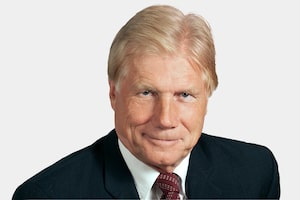In a new Maclean's ranking of Canada's prime ministers, one of the more surprising features, aside from Stephen Harper's placement way down in 11th spot, is that only one of the top seven finishers is a conservative.
The rankings, drawn from a survey of 117 specialists in Canadian history and politics, are a reminder of how Liberal leaders, men of the middle, have dominated and shaped the country.
But given the Liberals' marginalization in last month's election, a more polarized dynamic can be anticipated. It was seen in the strike at Canada Post with Conservatives taking the hard line and Jack Layton's New Democrats going the filibuster route to defend workers' rights. The Liberals were barely noticed as they took the middle ground, urging Canada Post and the union to put water in their wine.
With the hollowing out of the middle, the debate might come to be more like we've seen in the United States. Consider the contrasts between Richard Nixon and George McGovern, Ronald Reagan and Jimmy Carter, Al Gore and George W. Bush, Barack Obama and his adversaries. Harperland and Laytonland are somewhat more in keeping with that kind of dichotomy.
But our harsher political divide is in no way reflected by a polarization in the country itself. As Canada approaches its 144th birthday, rarely have the bonds of unity been so strong. With the success of the Conservatives, western alienation, which spanned four decades as one Quebec prime minister after another led the country, has all but disappeared. For a longer time, the threat of Quebec secession was in the air. But, astonishingly, the near vanquishing of the Bloc Québécois has been followed by another stunner - the unravelling of a Parti Québécois that appeared ready to take power in the next provincial election.
The forces for drawing apart, for regionalization, have been significantly diminished. On this Canada Day, the new oneness is something to be celebrated, the arrival of the royal newlyweds making it all the more splendid.
The great irony of the new unity is not only the coincidental decline of the party that traditionally brokered the left and right. There's also the oddity in which harmony is being forged at a time when the country is being led by a practitioner of divide-and-conquer politics. Mr. Harper's low ranking in the Maclean's poll is due, in good part, to his divisive style.
According to the Maclean's survey, Wilfrid Laurier is the greatest prime minister. Then comes John A. Macdonald, who is followed by five Liberals in this order: Mackenzie King, Lester Pearson, Pierre Trudeau, Jean Chrétien and Louis St. Laurent. Finally, we get more conservatives: Robert Borden is ranked eighth, followed by Brian Mulroney and John Diefenbaker.
Then there's Mr. Harper. He's condemned by those polled for his overly partisan and authoritarian approach to government. Says Trent University's Dimitry Anastakis: "Harper has distinguished himself most in being the most polarizing, opportunistic, shrewd and partisan prime minister in decades."
Even the conservatives who were surveyed rated him rather low. A disadvantage, of course, is that he's the incumbent. Time tends to soften the image. Mr. Chrétien finished ninth in the survey when he was PM; today, he's sixth. Another difficulty for Mr. Harper is that he lacks a stellar and memorable policy achievement. His most notable successes are in the realm of political warfare.
But the new conditions afford him a marvellous opportunity. Politically, the glue of the old liberal middle is all but gone. With the new harsher mix of left and right, the noises will be louder. But rarely has the country been in better shape to cope and to move forward. The provinces and the regions are quiet. On the national unity front, it's about as calm as Canada can be.
 Lawrence Martin
Lawrence Martin